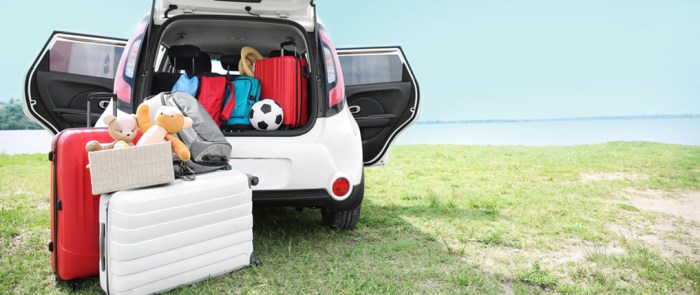If you pack your vehicle full you should blank – If you pack your vehicle full, you should think again. Overpacking a vehicle can have serious consequences, including decreased handling, increased braking distance, tire damage, and even accidents. In addition, overloading your vehicle can put a strain on your engine and suspension, leading to costly repairs.
To avoid these problems, it’s important to pack your vehicle safely and efficiently. This means ensuring that the weight is evenly distributed and that all cargo is properly secured. You should also use appropriate packing materials and techniques to prevent damage to your belongings.
Potential Risks of Overpacking a Vehicle

Overpacking a vehicle poses several potential safety hazards. It can decrease handling, increase braking distance, and damage tires. Overloading can also lead to accidents or breakdowns due to vehicle instability or component failure. Exceeding vehicle weight limits is also a legal violation, carrying potential fines or penalties.
Consequences of Overpacking: If You Pack Your Vehicle Full You Should Blank

Overpacking negatively impacts vehicle performance, reducing fuel efficiency, straining the engine, and damaging the suspension. It shortens the lifespan of vehicle components and increases the likelihood of costly repairs and maintenance.
Proper Packing Techniques
Pack vehicles safely and efficiently by distributing weight evenly and securing cargo properly. Use appropriate packing materials and techniques to prevent damage. Cargo organizers, tie-downs, and other accessories enhance packing efficiency and safety.
Considerations for Different Vehicle Types

Packing requirements vary depending on vehicle type. Sedans have limited cargo capacity and weight limits. SUVs offer more space but still have weight restrictions. Trucks have higher weight capacities but require careful loading to maintain stability. Specialized equipment or accessories may be necessary for specific vehicle types.
Practical Tips and Examples

- Pack heavy items low and towards the center of the vehicle.
- Use soft materials to fill gaps and prevent items from shifting.
- Secure loose items with straps or bungee cords.
- Avoid overloading the roof rack or towing capacity.
- Check tire pressure and adjust as needed for increased weight.
FAQ Section
What are the potential risks of overpacking a vehicle?
Overpacking a vehicle can lead to decreased handling, increased braking distance, tire damage, and even accidents. In addition, overloading your vehicle can put a strain on your engine and suspension, leading to costly repairs.
What are the consequences of overpacking a vehicle?
Overpacking a vehicle can reduce fuel efficiency, strain the engine, and damage the suspension. It can also lead to premature wear and tear on other vehicle components, increasing the likelihood of costly repairs.
How can I pack my vehicle safely and efficiently?
To pack your vehicle safely and efficiently, you should ensure that the weight is evenly distributed and that all cargo is properly secured. You should also use appropriate packing materials and techniques to prevent damage to your belongings.